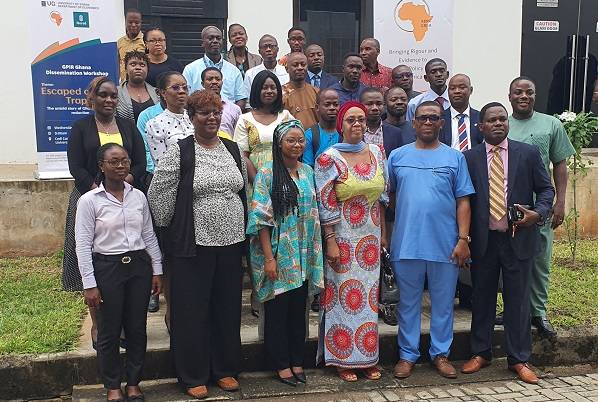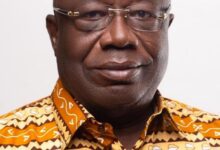
Panelists at a forum on poverty dynamics in Ghana have called on the government to focus on implementing programmes to enhance productivity in small-scale farming, particularly in rural areas across the country.
According to them, such programmes were key in tackling poverty and enabling households to improve upon their livelihoods.
The panellists included Prof. Bernardin Senadza of the Department of Economics, University of Ghana; Dr Dede W. Gafa, lecturer at the African School of Economics, Benin Campus, and Louis S. Hodey, Researcher, Institute of Development Studies, University of Sussex, United Kingdom (UK).
Organised in Accra by the Department of Economics, University of Ghana yesterday, the forum was on the theme “Poverty dynamics in Ghana.”
In addressing poverty, Prof. Senadza urged that existing flagship
programmes such as Planting for Food and Jobs and the National Entrepreneurship and Innovation initiatives should be complemented by a multifaceted, sustainable rural and infrastructure development programmes, particularly in northern Ghana.
He explained that, pro-poor policies and programmes which seeks to ensure equal access to education and employment opportunities in the country, including the Free SHS should be revised to target the most vulnerable groups.
“These groups include poor people residing in rural locations and northern Ghana, especially persons from disadvantaged backgrounds, the unemployed and those in vulnerable employment,” Prof. Senadza stated.
On his part, Dr Gafa noted that, balanced investments to bridge infrastructure gap in northern and southern Ghana was necessary to accompany efforts at ensuring productivity growth in the agriculture and informal sectors.
He said, social programmes in the country should be designed with a focus on building resilience of vulnerable households to shocks.
Dr Gafa said that social spending by the government must ensure the right balance between fiscal sustainability and reaching households who were below the poverty line.
“The country needs to be intentional about providing more equal access and opportunities for individuals from disadvantaged backgrounds in terms of education and employment,” she added.
Prof. Hodey said rural dwellers who were mostly engaged in traditional farming practices and low-productivity informal sectors were vulnerable to various shocks such as climate issues and job losses, a situation which was further compounded by the outbreak of COVID-19.
He stated that, although the government had implemented some social programmes such as the Livelihood Empowerment Against Poverty (LEAP), inequalities had increased over time and remained entrenched across the population.
“The categories of people who face the greatest challenge to escaping poverty are those in rural areas and those that have disadvantaged social backgrounds, hence the need for tailor-made measures to help them out of poverty,” he added.
BY CLAUDE NYARKO ADAMS







